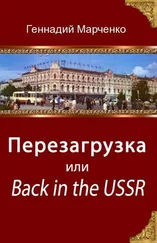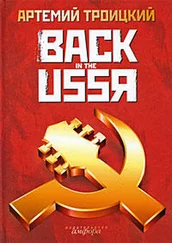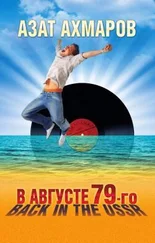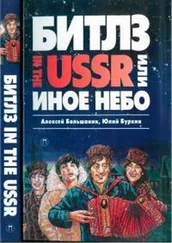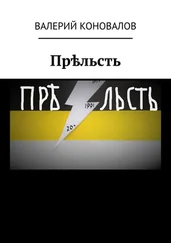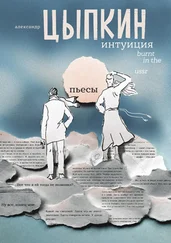I laugh and settle down to sleep again. The next time a cop wakes me I tell him to book me a hotel room; he leaves me alone. A lot of people have moved into the station. At night we gather in the waiting room and listen to Vysotsky; by day we go about our separate business.
I have no luck finding work. Gantimirov is away on a business trip and the plant won’t take me on without his approval. I try other factories. There are a lot of jobs going, but none of them provides accommodation. I look for a flat but am offered grim cages so far out of town that I refuse them.
My money is melting like Tien Shan snow, although I’m not drinking and barely eating. In the end I take a train to Tashkent and then jump another to Fergana, where a cousin of my mother’s lives. As everyone knows, the tongue leads to Kiev and I find my relative by asking around. He helps me get a job in a chemical factory and the plant gives me a place in a suburban hostel.
The area of Fergana where I live is modelled on the Cheryomushki district of Moscow, with rows of five-storey brick blocks, barren shops and dusty roads. Irrigation ditches run along the streets but these are choked with dead dogs and condoms. Each year new saplings are planted, only to wither and die in the smog of the huge new chemical plants whose chimneys smoke day and night, covering the Fergana valley with filth. In short, the town is not very different to Chapaevsk.
My work is easy enough, but I sweat and chafe in my protective clothing, rubber boots and gas mask. In my free time I hang around the hostel growing bored as there is no TV or other entertainment. I notice the lads who share the hostel never go in to the factory yet they come home in the evenings laden with food and drink.
“Here, Vanya, have some dinner with us,” they offer one night.
“No, it’s okay, I’m not hungry,” I lie.
“Try it, it’s dog meat.”
“Well, I’ll just take some salad.” I know people sometimes eat dog meat as a cure for tuberculosis but I don’t fancy it. After the lads and I have sealed our acquaintance with a bottle I ask how they managed to live so well.
“We only took a job at the plant to get these rooms and a residence permit. We wouldn’t work for the pittance they pay there. Come with us tomorrow and we’ll show you how to make some real money.”
In the morning we walk down to the railway line. Some men are unloading planks from a goods-wagon, throwing them down as carelessly as if they were shaking matches from a box. Without asking anyone’s permission we set about stacking the planks; at one o’clock some Uzbeks arrive to find us leaning against a neat pile. The Uzbeks, who are building a private house, ask us to load the planks onto their cars. When we finish they pay us and treat us to dinner. I earn more for that day’s work than I would in a week in the factory.
I come to a decision. From now on I’ll give up regular work and become a vagabond. It will be easy enough in Central Asia. If you try to live rough in European Russia you usually end up with a camp bunk as your bed. In Asia you can doss down under any bush and there is plenty of casual work to be found. I’m excited by the prospect of living without the blessings of regular work, the bathhouse on Saturday, and political meetings on Tuesdays.
My new friends and I travel on to Bukhara and Samarkand, picking up work as we go. I make adobe bricks, dig foundations and paint roofs. We spend our nights at chaikhanas , sleeping on low-slung cots that double as tables. In the mornings we drink bowls of green tea as we wait for the wine shops to open. Despite being Muslims, the Uzbeks are fond of alcohol. They also like to sit in circles smoking hashish.
“Try this, genuine Kashgar marijuana!” someone offers me.
It gives me nothing more than a pain in my temples. It’s just as well that I don’t take to hashish. Being an alcoholic is enough.
In Bukhara I work as a stoker in the brick kilns. You have to be very agile to avoid getting burned. The strongest men make up to 80 roubles a day, an amount which would take me nearly a month to earn back in Chapaevsk. The trouble is that no matter how much anyone earns they never save a kopeck. They drink it all away and I am no exception. I make so much money that I never have to be sober.
After a while the Central Asian climate begins to wear me down. My bones ache and I find it hard to sleep. I decide to return to Chapaevsk. The problem is that however much I earn I can never manage to save enough for a ticket home. After finishing a job I have to toast its completion; by the time I sober up my pockets are empty and I need money for my hair-of-the-dog.
I decide to look for work in a more remote area away from temptation. I return to Fergana, go down to the labour exchange and come to a quick arrangement with a Korean who has a plantation in the mountains. The man takes me up on the back of his motorbike, dipping the machine to left and right around tortuous hairpin bends. On left-hand curves my stiff right leg sticks up higher than my head. My hands are shaking so much from my hangover that I fear at any moment I’ll lose my grip and fly off, hurtling down to the valley floor hundreds of metres below. Rising up through clouds that soak our clothes and faces in moisture, we finally reach the plantation. Onions, garlic, watermelons and rice grow on high terraces through which glacier water flows. The Korean’s entire family, from tiny children to an ancient grandmother, work from dawn to dusk, yet they need extra labour to help weed the terraces. State investigators are bribed to keep away.
I am given a few roubles a day, food and packets of Beggars of the Mountain cigarettes. We work barefoot in freezing water while our bodies are exposed to the burning mountain sun. Our backs blister and our hands crack. At night we drop into pits lined with paper sacks and throw our exhausted bodies onto heaps of old rags.
A cobra slides into our pit. One of the Tadzhik labourers catches it by the neck and prepares to kill it.
“Stop!”
The Korean grandmother peers into the pit. She makes a sign for us to wait. Then she brings a large glass jar with a plastic lid and puts the snake inside. For the next three days she leaves the jar out in the sun. Liquid oozes from the dying snake. We feel sorry for it, but the old lady collects the liquid and uses it to make little cakes. The whole family eats them but we refuse. The Koreans explain that people who eat them will be immune to snakebites for the rest of their lives.
The one advantage of working in the mountains is the absence of alcohol. This enables me to return to Fergana after a month with enough money for a ticket home. Before I can leave town I have to go back to the hostel to pick up my passport. On the way I notice an inviting bar, with tables laid out under shady trees. I deserve a drink to celebrate, and I’ll still have plenty of cash for my ticket.
* * *
‘ALCOHOLICS AND LAYABOUTS!’proclaims our banner in bold white letters on black cloth. We are a filthy procession of swollen-faced men and women. Some have black eyes; some are on crutches. A trolley rolls along behind us, supporting a camera which is filming us for Fergana TV. A local who had a starring role on a previous march tells me that we’ll appear on the news tonight.
We parade down the middle of the road in full view of shoppers and passers-by. People laugh and shake their heads but no one shouts abuse. They probably think: ‘There but for the grace of God go I.’
The police picked me up after finding me passed out in a ditch. They hosed me down, put me in a cell for the night and in the morning forced me to stand in the yard with the other detainees while the superintendent lectured us on the evils of drink.
Читать дальше
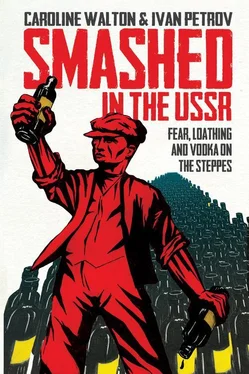
![Геннадий Марченко - Перезагрузка или Back in the Ussr. Книга 1. [СИ]](/books/53319/gennadij-marchenko-perezagruzka-ili-back-in-the-uss-thumb.webp)
